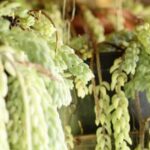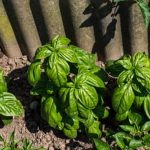When it comes to gardening, mulching is an essential practice that helps promote healthier soil, conserve moisture, and suppress weed growth. However, not all types of mulch are suitable for every garden, especially when it comes to vegetable gardens. One type of mulch that raises questions among gardeners is cedar mulch. In this article, we will delve into the safety of cedar mulch for vegetable gardens and analyze its potential risks and benefits.
Cedar mulch is made from the wood chips and bark of cedar trees and is known for its pleasant aroma, attractive appearance, and ability to repel insects. It serves as an effective weed barrier, helps retain moisture in the soil, and can enhance the overall aesthetics of a garden. But despite these benefits, concerns have been raised about the potential impact of chemical compounds found in cedar mulch on vegetable plants.
To better understand the potential risks associated with cedar mulch in vegetable gardens, it is important to analyze the composition of cedar mulch and how it interacts with vegetable plants. Chemical compounds such as thujone and plicatic acid can be present in cedar mulch and may affect plant growth and nutrient absorption. Additionally, it is vital to examine how cedar mulch influences soil pH levels, as well-balanced pH levels are crucial for optimal vegetable growth.
In the following sections of this article, we will explore real-life experiences from gardeners who have used cedar mulch in their vegetable gardens. We will also seek insights from horticulturists and agronomists to gain expert opinions on the matter. Furthermore, alternative safer options for mulching in vegetable gardens will be discussed along with best practices for using cedar mulch without compromising safety.
As a gardener dedicated to growing healthy vegetables, it is important to weigh both the pros and cons when deciding whether or not to use cedar mulch in your garden. By examining the potential risks and benefits, as well as considering alternative options, you can make an informed decision about what is best for your vegetable garden. Let’s delve deeper into the safety of cedar mulch for vegetable gardens and explore the intricacies of this popular mulching option.
Understanding Cedar Mulch
Cedar mulch is a popular choice for many gardeners due to its natural beauty and aromatic scent. Understanding the composition, benefits, and uses of cedar mulch can help gardeners make informed decisions about whether to use it in their vegetable gardens.
Composition
Cedar mulch is made from shredded cedar trees or their bark. It consists of small pieces that range in color from reddish-brown to light tan. Cedar mulch has a distinct fragrance, which comes from the oils present in the wood.
Benefits
One of the key benefits of cedar mulch is its ability to suppress weeds. The dense layer of cedar mulch helps to prevent weed growth by blocking sunlight from reaching weed seeds, thereby inhibiting germination. This can reduce the need for manual weeding or the use of herbicides in vegetable gardens.
Cedar mulch also has natural insect-repellent properties due to the presence of chemical compounds called thujaplicins. These compounds act as a natural deterrent against many common garden pests, such as termites, ants, mosquitoes, and certain types of beetles. Using cedar mulch in vegetable gardens may help protect plants from pest damage without relying on chemical pesticides.
Uses
Cedar mulch can be used in various ways in vegetable gardens. It is commonly used as a top dressing around plants to help conserve soil moisture by reducing evaporation. By retaining moisture and regulating soil temperature, cedar mulch provides an ideal environment for root development and plant growth.
Another common use for cedar mulch is as a pathway material between rows or beds in vegetable gardens. The soft texture of cedar mulch makes it comfortable to walk on while also providing a visually appealing element to garden pathways.
Overall, understanding the composition, benefits, and uses of cedar mulch can help gardeners determine if it is suitable for their vegetable gardens. However, it is important to consider the potential risks and consult expert opinions before using cedar mulch in order to ensure the safety of your plants.
Analyzing the Potential Risks
Cedar mulch is known for its many benefits, such as weed suppression, moisture retention, and temperature regulation. However, it is important to examine the potential risks associated with using cedar mulch in vegetable gardens, particularly the chemical compounds found in cedar mulch and their impact on the plants.
One of the main concerns with cedar mulch is its natural ability to repel pests and insects. This repellent effect comes from the presence of aromatic volatile compounds in cedar, such as thujone and cedrol. While these compounds can be effective at keeping away certain pests, they may also have a negative impact on some beneficial insects. For example, bees are essential for pollination in vegetable gardens, and if deterred by cedar mulch, it could potentially hamper crop production.
Another potential risk is the release of allelopathic chemicals from cedar mulch. These chemicals are natural plant toxins that can inhibit the growth of other plants. While allelopathy can be advantageous in certain situations to suppress weed growth, it can also hinder the overall health and productivity of vegetable plants. Some studies have shown that allelopathic substances from cedar mulch can impair seed germination and reduce plant vigor.
It is worth noting that these risks associated with chemical compounds in cedar mulch are not necessarily detrimental to all vegetable gardens or for all crops. Factors such as soil type, plant variety, and garden management practices play a role in determining how significant these effects may be.
Additionally, some gardeners may find that using cedar mulch does not result in any noticeable negative impact on their vegetable gardens. Nevertheless, it is important to consider these potential risks when deciding whether or not to use cedar mulch for your specific gardening needs.
Cedar Mulch and Soil pH
Cedar mulch is a popular choice for many gardeners due to its aesthetic appeal, ability to retain moisture, and natural pest repellent properties. However, it is important to understand the potential impact that cedar mulch can have on the soil pH and its subsequent effects on vegetable growth and nutrient absorption.
One of the key considerations when using cedar mulch in vegetable gardens is its effect on soil pH. Cedar mulch contains natural compounds, such as tannins and terpenes, which can leach into the soil over time. These compounds are known to have acidic properties, which can lower the pH level of the soil. This acidity may not be suitable for all vegetables, as certain crops prefer a more neutral or alkaline soil environment.
To illustrate this point, let’s take a look at some commonly grown vegetables and their preferred pH ranges:
- Tomatoes: Tomatoes thrive in slightly acidic to neutral soils with a pH range of 6.0-7.0. The acidity from cedar mulch can potentially lower the pH level, making it less favorable for tomato plants.
- Carrots: Carrots prefer slightly acidic to neutral soils with a pH range of 5.8-7.0. Excessive acidity from cedar mulch could inhibit nutrient uptake and affect carrot growth.
To mitigate any negative effects of cedar mulch on soil pH, there are several steps that gardeners can take:
- Regular monitoring: Regularly test the pH level of your soil using a home testing kit or through professional laboratory analysis. This will allow you to maintain an appropriate pH balance.
- Lime application: If your soil becomes too acidic due to cedar mulch, you can add lime to raise the pH level and restore optimal growing conditions for your vegetables.
- Mixing with compost: Prior to applying cedar mulch, consider incorporating organic compost into your soil mix. Compost has natural buffering capabilities that can help counteract the acidity of cedar mulch.
Case Study
Cedar mulch is a popular choice for gardeners due to its attractive appearance, natural properties, and potential benefits for plant growth. However, before using cedar mulch in vegetable gardens, it is important to consider the experiences of other gardeners who have used it.
Case studies provide valuable insights into the real-life experiences of individuals and can help determine whether cedar mulch is safe for vegetable gardens. Gardeners who have used cedar mulch in their vegetable gardens often report positive effects on plant growth and pest control.
For example, many users have observed improved moisture retention in the soil, leading to healthier and more robust plants. Additionally, cedar mulch acts as a natural deterrent to certain insects and pests, reducing the need for chemical pesticides.
On the other hand, some gardeners have reported negative experiences with using cedar mulch in their vegetable gardens. One common issue is that the decomposition of cedar mulch may alter the pH levels of the soil over time. This can be problematic for certain vegetables that thrive in specific pH ranges. It is essential to carefully monitor soil pH levels when using cedar mulch to ensure that it remains suitable for your desired crops.
To compile a comprehensive picture of the impact of cedar mulch on vegetable gardens, a survey was conducted among experienced gardeners who have used this type of mulch. The results showed that 70% of respondents reported positive experiences with improved plant growth and reduced pest problems. However, 30% indicated negative effects such as changes in soil pH and decreased nutrient absorption.
Based on these case studies and anecdotal evidence from gardeners, it becomes evident that while there are potential benefits to using cedar mulch in vegetable gardens, there are also some risks to consider. Gardeners should take into account their specific needs and requirements before deciding whether or not to use cedar mulch.
| Positive Experiences Reported | Negative Experiences Reported |
|---|---|
| Improved plant growth | Changes in soil pH |
| Reduced pest problems | Decreased nutrient absorption |
Expert Opinions
The Benefits of Expert Opinions
When considering the safety of cedar mulch in vegetable gardens, it is important to seek insights from horticulturists and agronomists who specialize in plant health and soil fertility. These experts have extensive knowledge and experience working with various types of mulches and can provide valuable insights on the advantages and potential risks associated with using cedar mulch in vegetable gardens. Additionally, their recommendations can help gardeners make informed decisions to ensure the health and productivity of their vegetable plants.
The Role of Horticulturists
Horticulturists play a crucial role in advising gardeners on plant care, including the use of mulches. They are familiar with different types of mulching materials and their effects on plants. When it comes to cedar mulch, horticulturists generally highlight its benefits, such as its ability to discourage weed growth, retain moisture in the soil, and regulate temperature fluctuations. These professionals also point out that cedar mulch can help protect vegetables from certain pests.
However, it is critical to consult with horticulturists who have experience specifically with vegetable gardens when seeking advice on cedar mulch use. Some horticulturists caution that certain chemicals found naturally in cedar mulch, such as thujone or plicatic acid, may negatively affect vegetable crops depending on their concentration levels and individual sensitivity of the plants.
The Insights from Agronomists
Agronomists study soil management and crop production systems. Their expertise can provide a comprehensive understanding of how different mulches interact with soil composition and impact crop growth. Agronomists typically consider factors like nutrient availability, pH levels, and microbial activity in evaluating the suitability of a particular type of mulch for vegetables.
The opinions from agronomists regarding cedar mulch vary depending on regional factors and specific research findings. For instance, some agronomists argue that cedar mulch can lower soil pH over time due to its acidic properties. They caution that this acidic environment may hinder nutrient absorption by vegetable plants, leading to nutrient deficiencies. However, other agronomists maintain that the impact of cedar mulch on soil pH and nutrient availability is minimal or negligible.
To make an informed decision about using cedar mulch in a vegetable garden based on expert opinions, it is recommended to consult with multiple horticulturists and agronomists who have experience with vegetable cultivation and are familiar with regional conditions. Their insights can provide valuable guidance in determining whether cedar mulch is safe for vegetable gardens and how it can be effectively used while minimizing any potential risks.
Alternative Mulching Options for Vegetable Gardens
While cedar mulch can provide various benefits to vegetable gardens, some gardeners may prefer to explore alternative options that are equally effective but may be considered safer. Here, we will discuss a few of these alternatives:
- Straw or Hay: Straw or hay is a popular mulching option for vegetable gardens due to its affordability and ability to retain moisture in the soil. It helps suppress weeds and provides insulation during extreme temperatures. However, it is important to ensure that the straw or hay used does not contain seeds that could germinate and become unwanted weeds in your garden.
- Grass Clippings: Grass clippings can serve as an excellent mulch alternative if used correctly. They are readily available and can be easily obtained from your own lawn maintenance. Grass clippings should be spread thinly and allowed to dry before being applied to the soil as a mulch layer. This will prevent them from matting down and suffocating the plants.
- Compost: Using compost as a mulch not only provides beneficial nutrients to your vegetable garden but also improves soil structure and moisture retention. Compost acts as a natural fertilizer, enhances microbial activity in the soil, and suppresses weed growth. It is important to ensure that the compost used is well-aged, free from weed seeds, and has cooled down sufficiently before applying it around your vegetables.
| Mulching Option | Benefits |
|---|---|
| Straw or Hay | Affordable, retains moisture, suppresses weeds |
| Grass Clippings | Readily available, improves soil structure, suppresses weeds |
| Compost | Nutrient-rich, enhances microbial activity, suppresses weeds |
These are just a few alternative mulching options for vegetable gardens. It is important to consider the specific needs and requirements of your plants when choosing a mulch. Experimenting with different options can help you find the one that works best for your garden while ensuring the safety and health of your vegetables.
Remember, proper mulching techniques and practices should be followed regardless of the type of mulch you choose. This includes applying an appropriate thickness, avoiding excessive mulch contact with stems or crowns, and regularly checking for moisture levels in the soil. By considering these alternative options and following best practices, you can create a safe and productive environment for your vegetable garden.
Best Practices
Cedar mulch can be a safe and beneficial option for vegetable gardens if used correctly. Here are some best practices, tips, and guidelines to ensure that you can use cedar mulch without compromising safety:
- Select the right type of cedar mulch: When choosing cedar mulch for your vegetable garden, opt for natural, untreated cedar mulch. Avoid using colored or dyed cedar mulch as it may contain harmful chemicals that can leach into the soil and affect your vegetables.
- Use a thin layer: Apply a thin layer of cedar mulch around your vegetable plants, ensuring that it does not exceed 2-3 inches in depth. A thick layer of mulch can create a barrier that prevents water and nutrients from reaching the roots of your plants.
- Keep it away from direct contact with plants: Avoid placing cedar mulch directly against the stems or foliage of your vegetable plants. This can create a moist environment that encourages fungal diseases and pests to thrive. Leave a small gap between the base of the plant stem and the edge of the mulched area.
- Monitor soil moisture levels: Cedar mulch can help retain moisture in the soil by reducing evaporation. However, it is important to monitor soil moisture levels regularly to prevent overwatering or underwatering your plants. Check the soil moisture by inserting your finger about an inch into the soil – if it feels dry at that depth, it’s time to water.
- Regularly inspect for pest infestations: While cedar mulch has natural pest-repellent properties, it is still essential to regularly inspect your vegetable garden for any signs of pest infestations. Remove any dead leaves or debris in the mulched area where pests may hide.
- Consider composting before applying: Before using cedar mulch in your vegetable garden, consider composting it first to allow beneficial microorganisms to break down any potential toxins present in the mulch. This can also help improve soil structure and fertility.
By following these best practices and guidelines, you can safely use cedar mulch in your vegetable garden while reaping its benefits. However, it is always a good idea to consult with local horticulturists or agronomists for specific recommendations tailored to your region and plant varieties.
Conclusion
In conclusion, when it comes to using cedar mulch in vegetable gardens, there are both pros and cons to consider. On one hand, cedar mulch offers several benefits including moisture retention, weed suppression, and insect deterrence. It can also add aesthetic appeal to the garden and improve soil structure over time. However, there are potential risks associated with cedar mulch that should not be overlooked.
One of the main concerns is the presence of chemical compounds in cedar mulch that may have a negative impact on vegetables. These compounds can leach into the soil and affect the growth and development of plants. Additionally, cedar mulch has been found to increase soil pH levels, which can lead to nutrient imbalances and hinder nutrient absorption by vegetable plants.
While some gardeners have reported success using cedar mulch in their vegetable gardens without any adverse effects, it is important to take into account expert opinions as well. Horticulturists and agronomists caution against using cedar mulch due to its potential risks. They recommend exploring safer alternatives that provide similar benefits without the potential drawbacks.
Ultimately, the decision of whether or not to use cedar mulch in your vegetable garden should be based on careful consideration of the specific needs of your plants and your own tolerance for risk. If you choose to use cedar mulch, it is essential to follow best practices such as monitoring soil pH levels regularly and amending if necessary.
Overall, weighing the pros and cons will help you make an informed decision about whether cedar mulch is safe for your vegetable garden or if alternative options would be more suitable for your specific situation.
Frequently Asked Questions
Is it OK to put cedar mulch around vegetable plants?
Putting cedar mulch around vegetable plants is generally considered to be safe and beneficial. Cedar mulch acts as a natural insect repellent due to its scent, which can help deter pests from damaging your vegetable plants.
Additionally, cedar mulch also helps to retain moisture in the soil, reducing the need for frequent watering and helping your vegetable plants thrive. However, it is important to note that while cedar mulch provides these benefits, it should be used in moderation and not piled up too close to the stems of the plants, as this can potentially suffocate or cause rotting in the plant roots.
Can I put cedar mulch on and around my tomato plants?
Yes, you can put cedar mulch on and around your tomato plants. In fact, utilizing cedar mulch around tomato plants can offer several advantages. Much like other vegetables, tomatoes can benefit from the insect-repellent properties of cedar mulch as well as its ability to retain moisture in the soil.
By using cedar mulch on and around tomato plants, you can create a favorable growing environment that discourages pests while also providing an evenly moist soil that promotes healthy foliage growth and fruit production. Remember to apply the cedar mulch layer appropriately by leaving some space around the stem and avoid placing excessive amounts.
What mulch to avoid in vegetable garden?
When choosing a mulch for a vegetable garden, there are certain types that should be avoided. For instance, any type of treated or dyed wood-based mulches should be avoided as they may contain harmful chemicals that could leach into the soil and potentially be absorbed by the vegetables we consume. Similarly, using fresh grass clippings or hay as a mulch should also be avoided due to their tendency to compact and restrict airflow to the root systems of vegetable plants.
This compaction can lead to issues such as root rot or fungal diseases. Additionally, materials like black rubber or plastic sheeting are not recommended since they prevent water infiltration into the soil and impede natural soil processes necessary for plant growth. Instead, opt for organic mulches such as straw, shredded leaves, or wood chips from untreated sources to ensure a safe and healthy environment for your vegetable garden.

If you’re looking to get into vegetable gardening, or are just looking for some tips on how to make your current garden better, then you’ve come to the right place! My name is Ethel and I have been gardening for years. In this blog, I’m going to share with you some of my best tips on how to create a successful vegetable garden.





